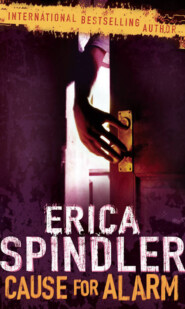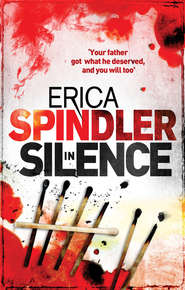По всем вопросам обращайтесь на: info@litportal.ru
(©) 2003-2024.
✖
Copycat
Автор
Год написания книги
2018
Настройки чтения
Размер шрифта
Высота строк
Поля
M.C. agreed again. “That killing duo, Lawrence Bittaker and Roy Norris, met in prison. Went on to jointly kill five teenage girls. Your caller is pretty proud of himself. I don’t see him hiding his ‘work.’ Probably bragged about how he pulled it off.”
“But not to just anybody. It had to be somebody he trusted. Child killers are not beloved, even in the joint.”
“And even if we assume these girls are his and not a copycat’s, prison still makes sense. It’s been five years since the last Sleeping Angel murder. We need the names of anyone recently released from the state pens.”
Kitt sat back, mulling over the pieces, thinking aloud. “The original SAK committed three murders. He executed each crime exactly six weeks apart. Then he stopped.”
She shifted her thoughts to his calls, the things he said. “He believes his crimes were perfect. That’s important to him, maybe even more important than getting away with the crime. What does that say about him? Who is this guy?”
M.C. narrowed her eyes. “He’s arrogant. Cocky. Out to prove he’s the best.”
“He thinks he has proved it,” Kitt offers. “Then along comes this ‘copycat.’ Our SAK is pissed. He doesn’t think this guy has the ability to pull ‘perfect’ off. He’ll make him look bad.”
“He won’t be as careful,” M.C. says. “He’ll leave evidence behind. Or his victims won’t be random. Or he won’t have the self-control to stop. He’s already blown it by killing two girls in three days.”
He’d seen this coming. Absolutely. He knew who the killer was.
Kitt opened her mouth to say just that, then swallowed the thought as another jumped into her head.
Self-control. Dear God.
“What are you thinking?” M.C. asked.
“If the SAK wasn’t in prison, if he was able to consciously stop in order to lessen the chances of being caught, he’s a whole different breed of serial. One with uncommon control over his urges.”
“Which would make him that much more dangerous.”
“Exactly.”
M.C. stood. “Evidence is what it is.”
“We have no way of knowing if and when he’ll stop.”
“So we focus on finding a commonality between the victims.”
“Bingo.” Kitt followed her to her feet, grabbing her jacket from the back of her chair. “Let’s fill Sal and Sergeant Haas in. Then talk to the girls’ parents.”
18
Friday, March 10, 2006 4:20 p.m.
Julie Entzel’s mother was still in her bathrobe and bed slippers when she answered the door. When she saw them, a look of fear came into her eyes, followed by one of hope.
“Have you found out something?” she asked.
“Nothing definite yet,” M.C. said gently. “We wanted to ask you a few more questions.”
Margie Entzel looked crushed. She nodded and wordlessly opened the door wider. She shuffled deeper into the house, to a small family room. The television was on. The Weather Channel.
She picked up the remote, hit Mute, then looked at them. “I like watchin’ it ‘cause I don’t have to think.”
Kitt murmured her understanding and leaned forward. “Mrs. Entzel, I’m Detective Lundgren. I’m so sorry for your loss.”
The woman’s throat worked; she struggled to speak. “I seen you on TV the other night. Today, I seen where another girl got killed.”
“Yes.” Kitt glanced at her partner, then back at Margie Entzel. “We are going to catch him. Soon. You can help us.”
The mother clasped her hands on her lap, expression growing determined. “How?”
“We’re trying to find a link between your daughter and the other girl who was killed. Did you know her or the family?”
She shook her head that she didn’t. They ran through the list of possible places their paths intersected: school, church, pediatrician, the places they shopped, restaurants they frequented. M.C. took notes while Kitt listened and prodded the mother’s memory.
“Any out-of-the-ordinary stops or events in the past few months?”
Margie Entzel thought, expression tight with effort. “Girls’ softball tryouts. My uncle Edward’s seventieth birthday … Julie’s birthday party.”
“When was that?”
“Her birthday was January 21. It was a Saturday. She was so … excited to be having her party on her birthday. That doesn’t happen that … often.”
Marianne Vest’s tenth birthday had been in February.
Kitt glanced at M.C. She hadn’t made the connection yet.
“You had a party for her? Where?”
She plucked a tissue from the box and dabbed her eyes. “The Fun Zone. She loved it there.”
This time M.C. looked at Kitt. Kitt sent her the slightest nod, which she returned. M.C. closed her notebook and stood. “We’ll talk to the other girl’s family, cross-reference this list. Hopefully, something will intersect.”
Kitt stood and held out her hand. “Thank you, Mrs. Entzel. We’ll be in touch.”
Margie Entzel took her hand. Hers was damp. “I wish I could have helped more,” she said.
“You helped more than you know. If you think of anything else, don’t hesitate to call.”
They waited until they were in the car to speak. Kitt started the car, then looked at M.C. “Julie Entzel’s birthday was in January, Marianne Vest’s in February. Coincidence?”
“I bet not. Or maybe I should say, I hope not.”
Within the hour, their hunch proved correct. Marianne Vest had also had her tenth birthday party at the Fun Zone.
19
Friday, March 10, 2006 5:40 p.m.
The Fun Zone was an indoor play place that catered to children from ages two to fourteen. For the little ones there were rides, a ball pit and maze; for the older ones, laser tag, a rock-climbing wall and a game arcade the size of a small university. As an added incentive, the Fun Zone mascots, Sammy and Suzi Squirrel, roamed the place, handing out hugs and signing autographs.











